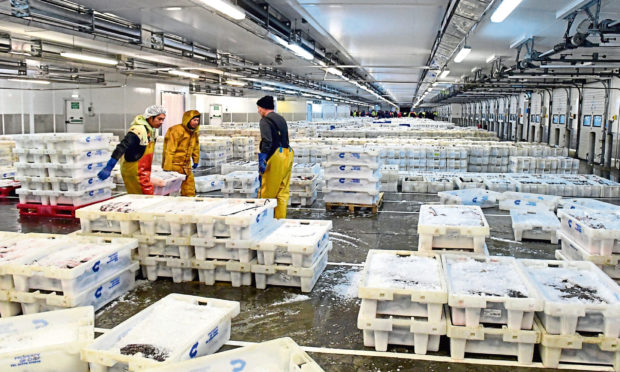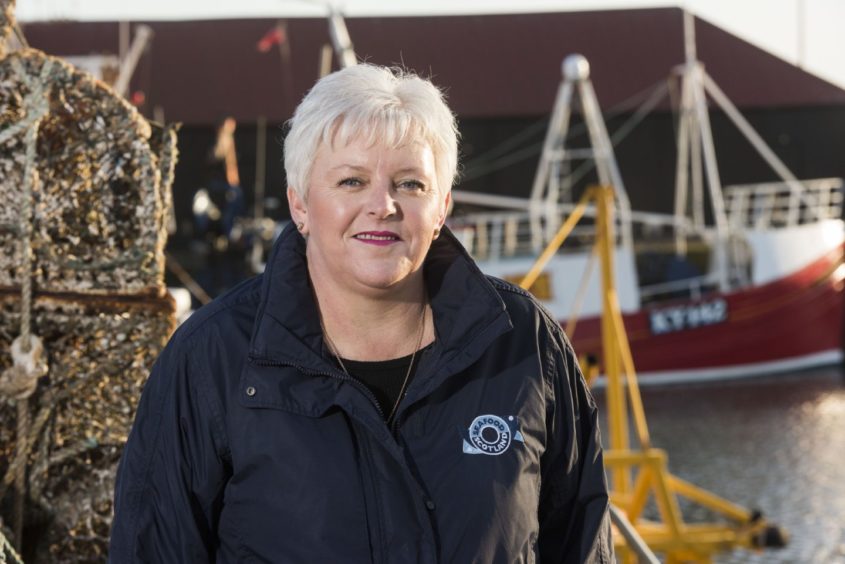Seafood export woes have left about a third of the Scottish fishing fleet tied up in port after a slump in the value of its catch.
New evidence of the cost of Brexit to this country’s valuable catch sector and its supply chain emerged just as Boris Johnson’s Christmas Eve trade deal with the European Union came under closer scrutiny in Parliament.
Orkney and Shetland MP Alistair Carmichael said major delays for exports of Scottish fish and shellfish since the start of 2021 were a “shambles” of the UK Government’s making.
Counting the cost of the damage already done to the industry, trade body Seafood Scotland said the impacts were “widespread”.
‘Problems are becoming clearer’
It added: “Issues from computer failures to lack of clarity on paperwork have rendered some Scottish companies’ efforts to export seafood all but impossible.
“Last week’s problems gave a strong indication of the fragility of the systems that have been introduced for exporting premium Scottish seafood to the EU.
“And with more companies getting back to work this week after the festive break the problems are becoming clearer.”
Reporting a 40-50% drop in prices for many species at fish markets around Scotland this week, Seafood Scotland said: “Processors and intermediaries are not buying as they are not guaranteed to be able to sell seafood on to EU customers, because they cannot get it out of the UK.
“In some cases the price drop has been up to 80%.
“This is stabilising but only because there is less fish being landed. It is not a sustainable position.”
According to Seafood Scotland the main species affected are those popular in European markets, such as coley, megrim, whiting, monkfish, hake, ling and highly-perishable premium shellfish.
We need to get these boats back landing in Scotland as soon as possible and we need the processors back operational and selling seafood into the EU in order to do this.”
About one-third of the Scottish fleet is currently tied up, the trade body said, adding: “This means the boats are not going out and those fishermen are not working.
“Some boats that are still fishing are redirecting their catch landing to Denmark, where it can more easily progress to European markets as there is little or no demand in Scotland with the current crisis.
“This means that the Scottish processing sector, which employs around 10,000 people, is completely missed out of the equation.
“We need to get these boats back landing in Scotland as soon as possible and we need the processors back operational and selling seafood into the EU in order to do this.
“The industry is working together with government (UK and Scottish) to try to resolve problems throughout the supply chain.
“No one party can fix this issue overnight, but losses for the sector are mounting and the situation is urgent.
“We have days to fix it, not weeks.”
Seafood suppliers throughout the UK are suffering.
Peter Wood, a Gloucestershire-based exporter of glass eels for conservation projects around Europe, said: “All are our exports to the EU are banned now that we have become a ‘third country’.”
But Scotland exports a far higher volume of seafood than other parts of the UK, so is feeling the impact more keenly.
Companies which normally send millions of pounds worth of product to the EU every week are struggling to get their exports through.
Calling for a six-month grace period for complying with all the new red tape, Donna Fordyce, head of Seafood Scotland, said: “The sector is at rock bottom and needs space to breathe.”
In Parliament, Mr Carmichael said the industry was led to expect a “sea of opportunity” after Brexit, adding: “This is a shambles of the government’s own making.”
Rural Affairs Minister George Eustice said the government was working closely with industry in an attempt to “iron out” teething problems.
Scottish Salmon Producers’ Organisation chief executive Tavish Scott said a relaxation of export rules to fix problems would be “a pragmatic and much-needed solution”.

